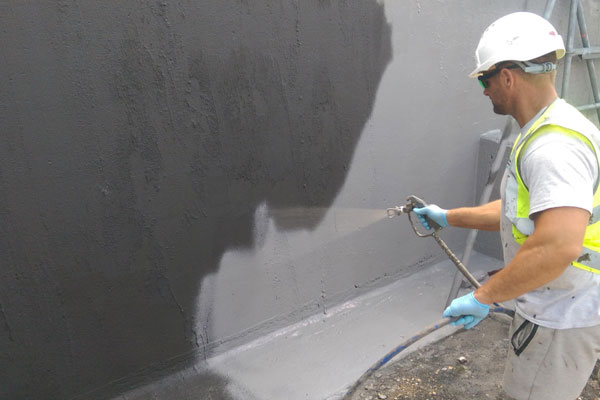Waterproofing is a critical consideration for homeowners in Hamilton, where the weather can pose significant challenges. From heavy rains to snowmelt, the potential for water damage is ever-present. Effective waterproofing strategies can safeguard your home against these threats, preserving its structural integrity and protecting your investment. This blog delves into various waterproofing techniques, the benefits of each, and practical advice for homeowners.
Understanding the Need for Waterproofing
Waterproofing is essential to prevent water from penetrating your home’s structure, which can lead to a host of problems. Water infiltration can cause structural damage, such as weakened foundations, rotting wood, and corroded metal. It can also create an environment conducive to mold and mildew growth, which poses health risks. In Hamilton, the combination of rain, snow, and freeze-thaw cycles makes waterproofing particularly important.
Key Waterproofing Techniques
Several techniques can be used to waterproof your home, each offering unique advantages. Here are some of the most effective methods:
- Exterior Waterproofing: Exterior waterproofing involves applying a waterproof barrier to the outside of your home. This is typically done by excavating around the foundation and applying a waterproof membrane or coating. This method is highly effective because it prevents water from ever reaching the interior of your home.
- Interior Waterproofing: Interior waterproofing solutions focus on stopping water that has already entered the home. This can include the use of sealants, waterproof paints, and vapor barriers on walls and floors. Interior waterproofing is often used in conjunction with exterior methods for added protection.
- Drainage Systems: Proper drainage is crucial for effective waterproofing. French drains, perimeter drains, and sump pumps are common systems used to divert water away from your home’s foundation. These systems help manage water flow and prevent accumulation around the foundation.
- Roof Waterproofing: The roof is another critical area that requires waterproofing. Waterproof membranes, coatings, and sealants can be applied to the roof to prevent leaks. Regular maintenance and inspections are essential to ensure the roof remains watertight.
- Basement Waterproofing: Basements are particularly vulnerable to water infiltration due to their below-ground location. Waterproofing a basement typically involves a combination of exterior and interior methods, including drainage systems, sump pumps, and wall coatings.
Benefits of Waterproofing
The benefits of waterproofing your home are numerous. Here are some of the key advantages:
- Protection Against Structural Damage: Waterproofing prevents water from penetrating and damaging the structural components of your home, such as the foundation, walls, and roof. This helps maintain the integrity of your home and reduces the need for costly repairs.
- Improved Indoor Air Quality: By preventing water infiltration, waterproofing reduces the risk of mold and mildew growth. This leads to improved indoor air quality and a healthier living environment.
- Increased Property Value: A well-maintained, waterproofed home is more attractive to potential buyers. Waterproofing can increase your home’s market value by ensuring it remains in good condition.
- Energy Efficiency: Waterproofing can also improve your home’s energy efficiency. By sealing cracks and gaps, you can prevent drafts and reduce energy loss, leading to lower heating and cooling costs.
Practical Waterproofing Tips for Homeowners
Maintaining a waterproof home requires ongoing effort and attention. Here are some practical tips for homeowners in Hamilton:
- Regular Inspections: Conduct regular inspections of your home’s exterior, interior, and roof to identify any potential issues. Look for signs of water damage, such as damp spots, mold, or peeling paint.
- Maintain Gutters and Downspouts: Ensure gutters and downspouts are clean and functioning properly. Blocked gutters can cause water to overflow and accumulate around the foundation.
- Seal Cracks and Openings: Use sealants to close any cracks or openings in your home’s foundation, walls, and roof. This prevents water from entering and causing damage.
- Ensure Proper Grading: The ground around your home should slope away from the foundation. This helps direct water away from the structure and prevents pooling.
- Install and Maintain a Sump Pump: If your basement is prone to flooding, a sump pump can be an effective solution. Ensure it is properly installed and maintained to keep your basement dry.
In conclusion, waterproofing is a vital aspect of home maintenance in Hamilton. By understanding the various techniques and implementing regular maintenance, homeowners can protect their properties from water damage and ensure a safe, comfortable living environment.



